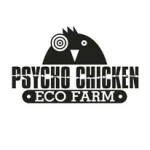The NC Cooperative Extension, a valuable resource for NC Farmers is seeking feedback.

You can let them know what you think with their survey here (until April 30, 2020):
https://survey.az1.qualtrics.com/jfe/form/SV_0vQFovkAIbuXf5c
Of particular interest for me was the questions about their programs. Here’s what I had to say:
It’s not that you don’t have the programs. It’s that the information in those programs are frequently based on research performed in the1950’s and ’60’s!
Restricting agents to only disseminate information from peer-reviewed research (frequently funded from dubious sources) is tying the hands of a critical resource–your agents. This is a common issue nationwide. While peer-reviewed research has it’s place, so to does the promotion of on-farm experimentation and exploration. Sparking the imagination of farmers is far more productive and important than defining restrictive “Practices” for them to follow which may not work within their unique context.
NC has an opportunity to be a leader in supporting effective, non-toxic, regenerative farming practices. The “Peer Reviewed” research doesn’t necessarily exist in this field because in some instances, it is too young to have had the studies performed and peer reviewed. Yet there are countless professional organizations with decades of research showing better yield, healthier produce, lower cost, and less dependence on fluctuating fertilizer and energy markets. Rodale Institute, ACRES USA, Understanding Ag, the Savory Institute, the Xerces Society, and countless more all have extensive experience, research, and data spanning decades. Incorporate this wealth of knowledge into your extension programs and stop tying the hands of your agents.
Now is the time for the NC State extension to eliminate ridiculous restrictions that require your intelligent agents to continue to recommend practices they know to degrade land, profit, health, and efficient use of resources.
Business as usual isn’t working.
Proscribing “Practices” has limited impact. Instead, of teach the observation of outcomes and adjusting your practices based on those outcomes. This is a much more effective management strategy if we are to make our farms resilient in these desperate and challenging times, created in large part by poor farm practices promoted by university extensions around the globe over the last 100 years.
Get ahead of this. Be a leader. Change the face of agriculture in NC as an example for the rest of the USA and the world to follow. We can have the healthiest, most diverse, productive, and profitable farms in the country if managed properly.
Don’t neglect to include farmland protection in your programs. There are many people who will do this voluntarily if the resources they need to accomplish it are at their fingertips and they feel the support of the farming community behind them. Without farms, we will be without food, regardless of how rich the stock brokers think they are. When the ‘bottom line’ becomes the health of our communities, we will all have much more to celebrate and be all the richer for it.




